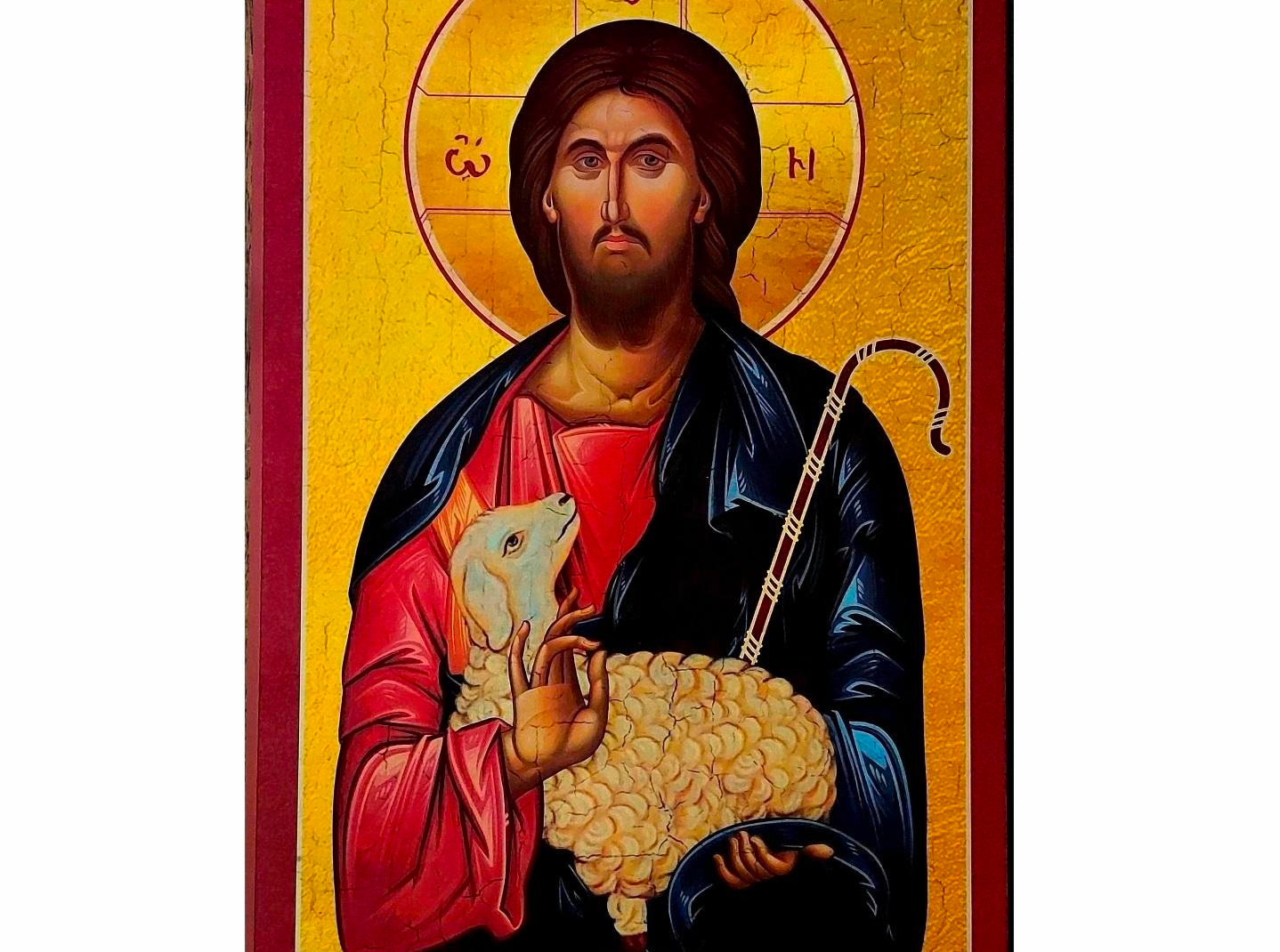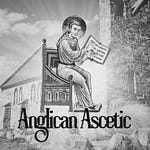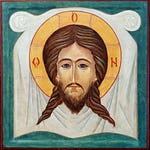Our Lord Jesus speaks clearly to us today. And it is a message that is particularly suited to Eastertide, when we celebrate that Christ is risen from the dead; that He has trampled down death by death, and upon those in the tomb, bestowing life. Our Lord Jesus says, “I am the good shepherd.” This is truly the good news of our religion: that Jesus is our Good Shepherd: that we can know Him, and that He always knows us. In the words of the Anglican confessor Father Isaac Williams, “He that died for us, and gave us that proof of His love, has not gone away, and departed, and left us in the wilderness, but is even now with us as the good Shepherd.” As a Good Shepherd, our Lord is tender and affectionate with us; He guides us; He wants nothing but the best for us; He cares for us, so much so that when we are lost, He seeks us out, and rejoices when we find Him, and we are found by Him.
“I am the Good Shepherd” is one of the seven statements by Jesus that are called His “I am statements.” These have that name because they follow the same form—I am the bread of life; I am the light of the world; I am the resurrection and the life; I am the way, the truth, and the life; I am the true vine; I am the door of the sheep; and I am the good shepherd.
All of these I am statements are an echo of how God announced Himself to Moses at the Burning Bush: “Moses said to God, ‘Indeed, when I come to the children of Israel and say to them, “The God of your fathers has sent me to you,” and they say to me, “What is His name?” what shall I say to them?’ And God said to Moses, ‘I AM WHO I AM’” Another, more literal translation is, “I am the Existing One.” Throughout scriptural history, there is a small, still voice that speaks—a voice of profound presence, of authority, of creativity—a voice that tells us who we are, a voice that teaches and guides, a voice that beckons us toward what He would have us do. A voice that has spoken through the prophets.
The disciples who hear Jesus say He is the Good Shepherd are themselves devout Jews, and thus soaked in imagery of a “shepherd,” which is resonant throughout the Scriptures. Of course it is in the 23rd Psalm—our Good Shepherd makes us lie down in green pastures and leads us besides still waters, reviving our soul. In the centuries before the Incarnation of Christ, the People of God sang, “We are the people of His pasture and the sheep of His hand,” a verse from the 95th Psalm which has carried over into the daily Liturgy of Matins for two thousand years.
Still deeper were they soaked in the image of the Shepherd through the Book of Ezekiel. This book of oracles, of prophetic preaching, was enormously influential from its inception, influencing other prophetic books as well as the New Testament Book of Revelation. It is from Ezekiel that we have the image of the four evangelists and their allegorical faces—Matthew the angel, Mark the lion, Luke the ox, and John the eagle. It was probably published during the exile, the Babylonian captivity. Its primary themes include the defiling effect of sin by the people of God and God’s subsequent abandonment. That is a pattern the disciples recognized—how sin leads to feelings of abandonment by God—how sin crucifies Jesus, and Jesus had died and, it seemed, left them. Yet Jesus taught the Church to find Him in the opening of Scripture and breaking of bread. So the Church strives to receive the Eucharist properly and to search the scriptures with new eyes and ears of faith.
The 34th chapter of Ezekiel has been powerful for the Church to understand Christ as our Good Shepherd. In Ezekial 34 are four oracles about shepherds, one after another. The first describes evil shepherds. The second describes the nation’s restoration with God as the true shepherd. The third again has to do with evil shepherds, and the final part predicts restoration under a new Davidic shepherd. Let me read portions of that fourth part:
“I will save my flock, they shall no longer be a prey; and I will judge between sheep and sheep. And I will set up over them one shepherd, my servant David, and he shall feed them: he shall feed them and be their shepherd. . . .I will make with them a covenant of peace . . . And I will make them and the places round about my hill a blessing; and I will send down the showers in their season; they shall be showers of blessing. And the trees of the field shall yield their fruit, and the earth shall yield its increase, and they shall be secure in their land; and they shall know that I am the Lord, when I break the bars of their yoke, and deliver them from the hand of those who enslaved them. . . . And they shall know that I, the Lord their God, am with them, and that they, the house of Israel, are my people, says the Lord God. And you are my sheep, the sheep of my pasture, and I am your God, says the Lord God.”
Through this passage and the others, Jesus Himself, by means of the Holy Spirit, speaks. The Church recognizes Christ the Good Shepherd in the prophecy of Ezekiel. They heeded His voice, for Christ speaks in and through Ezekiel – knowing truly they were the people of His pasture and the sheep of His hand. As are we.
Our hope also grows in this way. Despite the distortions of a fallen world surrounding us, and even the distortions of our own sinful ways, the voice of our shepherd calls to us. He makes known to us His grace, His love—that our lives are always in His hands. He died for us, and rose to eternal life for us—so that we with confidence can die daily to our sin, that as we seek to put off the old man of our unholy habits and desires, and put on the new man of Christ’s holy garments and thereby rise by Him, with Him, and in Him. And we rise as we receive the bread of angels, the food of heaven—given for our sake to actually make Him present again: present in the most Holy Sacrament of the Altar, the Eucharist, by which the Holy Shepherd of our souls feeds our souls with Himself: Christ our daily bread, who lives and reigns with the Father and the Holy Ghost, ever one God, world without end. Amen.











Share this post